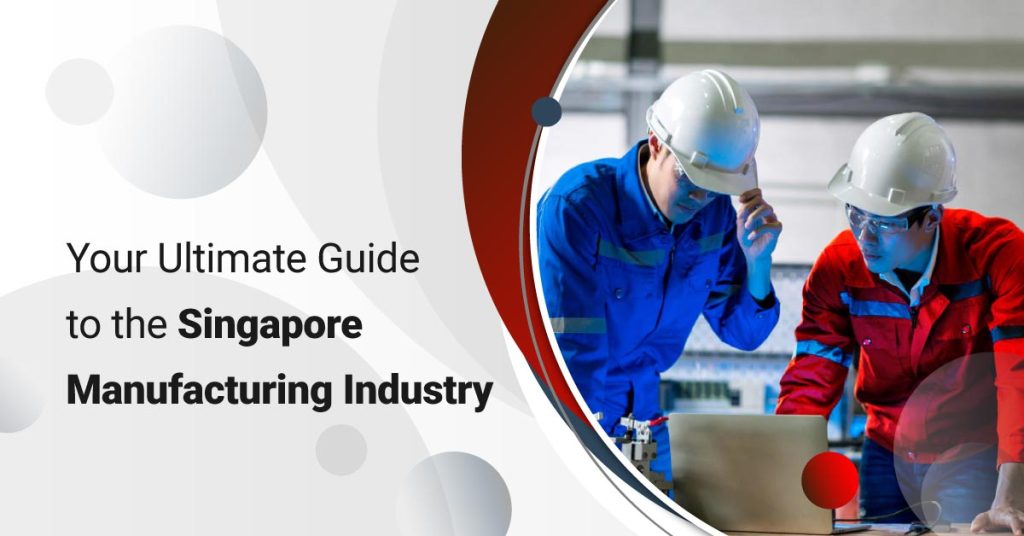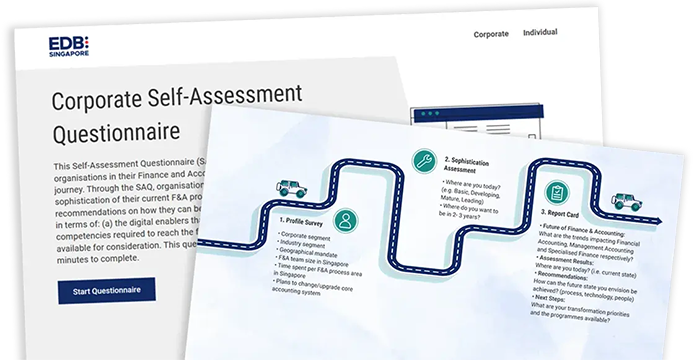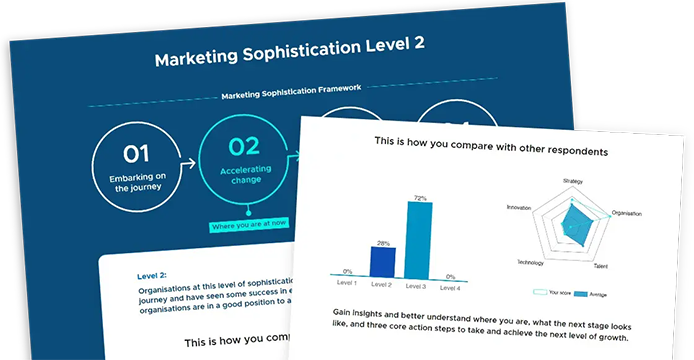The manufacturing industry has undergone profound changes in recent decades, driven by globalisation, technological advances, and Asia’s emergence as a major player.
However, in certain Asian and ASEAN countries, these changes have often fuelled a cutthroat competition focused on pricing, rather than innovation-based value.
Amidst this is Singapore, which while primarily known for excelling in financial services and tax incentives, now has its eyes on becoming a leading global manufacturing hub.
Global firms such as Procter & Gamble (P&G) and Siemens are setting up manufacturing facilities there as part of strategic initiatives to nurture Singapore’s position as an international base for talent, trade, and innovative technology.
So, how does Singapore stand out from the rest in terms of its manufacturing landscape?
The city-state has emerged as a beacon of forward-thinking that is embracing Industry 4.0 to transition from a manufacturing hub to a value-adding hub. This strategic move is designed to consolidate its leadership position in the global manufacturing space.
This ambition takes tremendous foresight and investment in technology, skills and infrastructure, which is something Singapore excels at. Let us take a look at the state and future of Singapore’s promising manufacturing industry, and how you can be a part of it.
Embracing Industry 4.0: Singapore’s Pioneering Approach
Singapore’s approach to the Fourth Industrial Revolution, often termed Industry 4.0, is characterised by its forward-thinking strategies and relentless pursuit of innovation.
From rolling out robust initiatives to cultivating an ecosystem conducive to digital advancement, Singapore’s transition to Industry 4.0 is an instructive model for nations and industries worldwide.
Related Read: Industry 4.0: The Growth of Advanced Manufacturing in Southeast Asia
Noteworthy Initiatives and Strategies
Industry 4.0 Human Capital Initiative
The Industry 4.0 Human Capital Initiative aims to equip Singapore’s workforce with essential Industry 4.0 skills. It aims to aid businesses in these aspects, with the aim of increasing productivity levels:
- Adopting tools
- Using data
- Garnering relevant insights
- Automating processes
- Determining crucial skills for digital transformation
Productivity Solutions Grant (PSG)
The PSG supports businesses in their quest for technological adoption. It extends funding for off-the-shelf solutions, from digital solutions, equipment, to consultancy services that can improve productivity.
JTC Corporation’s Agreement With Hyundai Motor Group
Singaporean government agency JTC Corporation reached a deal with Hyundai Motor Group in 2022 to team up on transport and logistics for the country’s upcoming industrial parks.
Manufacturing 2030
A visionary roadmap, Manufacturing 2030, targets a 50% expansion in the manufacturing sector over the next decade, leaning heavily on technological innovation. It involves fostering public-private partnerships, promoting research & development, and encouraging digital transformation.
The Pioneer Certificate Incentive (PC(M))
The Pioneer Certificate Incentive for manufacturing promotes capability growth and incentivises new or expanded economic activities in Singapore. It aims to encourage large-scale, desirable manufacturing and HQ activities that create tangible economic benefits.
Development and Expansion Incentive (DEI)
This government-led initiative is a tax incentive that encourages high-value-added manufacturing activities. It aims to promote growth in Singapore and offers a concessionary tax rate of 10% to qualified companies.
Expanding Business Opportunities: Understanding the PC(M) and DEI
At the heart of Singapore’s manufacturing growth strategy lies the latter two strategies in the previous list, the PC(M) and DEI.
Both are designed to promote a higher level of operations and bring economic benefits to the country through attractive tax benefits for those looking to take advantage of Singapore’s bright future as a global manufacturing 4.0 hub.
Nurturing Innovation: The PC(M)
The PC(M) is a tax incentive that encourages companies to grow capabilities and conduct new or expanded economic activities in Singapore.
The incentive is aimed at encouraging companies to carry out desirable manufacturing activities in Singapore on a significant scale that generates tangible economic spin-offs.
PC(M) Assessment Criteria
The assessment criteria for the PC(M) are as follows:
-
- Introduction of Advanced Technology: The entity should introduce technology, skill sets, or know-how that are significantly more advanced than the average currently prevailing in Singapore’s manufacturing industry.
- Quantitative Aspects:
-
- Employment Creation: The project should create new jobs, taking into account the skills, expertise, and seniority of the positions.
- Fixed Asset Investment: There should be substantial investment in fixed assets like plants, buildings, or equipment.
- Capability Growth: There should be a commitment to enhancing capabilities in Singapore, which could include aspects like technology, skill sets, and know-how.
Application Process for PC(M)
To start the application process for the PC(M), your entity is obligated to submit a formal application to the Singapore Economic Development Board (EDB), consisting of two main components:
- Core Form: This form requires your entity to offer details about its anticipated incremental investment. Such investment considerations include aspects such as employment growth, fixed asset investments, and total business expenditure.
- Supplementary Form: This additional form necessitates your entity to supply further details regarding the products to be manufactured and the employment of skilled personnel. The information should be closely aligned with your business strategy and investment plans.
Expanding Business Opportunities: Understanding the DEI
The DEI is a tax incentive that encourages companies to engage in high-value-added manufacturing activities in Singapore, either through a new setup or an expansion of existing operations in Singapore.
The incentive aims to encourage companies to grow their capabilities and conduct new or expanded economic activities in Singapore.
Companies that are awarded a DEI certificate will benefit from a concessionary tax rate of 10% for 5 years, considerably lower than Singapore’s statutory tax rate of 17%.
DEI Assessment Criteria
The DEI has specific terms and conditions that your entity needs to fulfil, in addition to meeting the standard conditions stated in the Letter of Award (LOA). The terms of the DEI are:
Qualifying Period: The incentive is valid for five years.
Your entity must fulfil the following conditions:
- Incur an additional Fixed Asset Investment (FAI) of a minimum of S$6.5 million by the end of Year 5
- Employ at least 15 additional skilled employees, all of whom must be based in Singapore by the end of Year 5
The additional FAI and employment numbers are calculated based on the entity’s last Financial Year FAI and employment.
Please note that EDB reserves the right to revise/update these conditions from time to time. In terms of assessment, your entity will be evaluated on its ability to meet these quantitative conditions.
Qualitative aspects of the project, including the quality of jobs created from the project, the generation of spin-offs to the economy, and the commitment to grow capabilities in Singapore, will also be considered during the assessment.
Application Process for DEI
To start the application process for the DEI, your entity must submit a formal application to the EDB, consisting of two main components:
- Core Form: This form requires your entity to offer details about its anticipated incremental investment. Such investment considerations include aspects such as employment growth, fixed asset investments, and total business expenditure.
- Supplementary Form: This additional form necessitates your entity to supply further details regarding the products to be manufactured and the employment of skilled personnel. The information should be closely aligned with your business strategy and investment plans.
How You Can Be Part of the Singapore Manufacturing 4.0 Future
Singapore’s manufacturing industry, underpinned by its strategic embrace of Industry 4.0, holds immense promise for both local and foreign investors.
However, to navigate the landscape successfully and take full advantage of the opportunities available, including the DEI and PC(M) incentives, expert guidance is often indispensable.
At InCorp, we are equipped to provide you with the tailored advice and assistance you need. Contact us today. Let us explore how your company can be part of Singapore’s bright Manufacturing 4.0 future and make it a reality.
Growing your business and need to develop your marketing strategies and finance functions?
Discover these free self-assessment tools by the Singapore EDB:
FAQs About Manufacturing Industry in Singapore
- Singapore's manufacturing industry is being driven by a robust digital infrastructure, government initiatives, favourable demographic trends, and the strategic adoption of Industry 4.0 technologies.
- Singapore has launched several notable initiatives to support Industry 4.0, including the Industry 4.0 Human Capital Initiative, the Productivity Solutions Grant, and the Manufacturing 2030 roadmap.
These programmes aim to foster a digitally literate workforce, increase productivity, and transform the manufacturing sector.
- The Development and Expansion Incentive and the Pioneer Certificate (Manufacturing) are incentives designed to attract and retain businesses within the manufacturing sector in Singapore.
Any manufacturing company, whether local or foreign, with substantive business plans for growth, expansion, or digital transformation in Singapore, can apply for these incentives.
- InCorp can provide expert advice and assistance in understanding and navigating the complex landscape of Singapore's manufacturing sector.
From advising on the application processes for the DEI and PC(M) incentives to helping you understand the nuances of Industry 4.0 in Singapore, we're equipped to support your investment journey.




